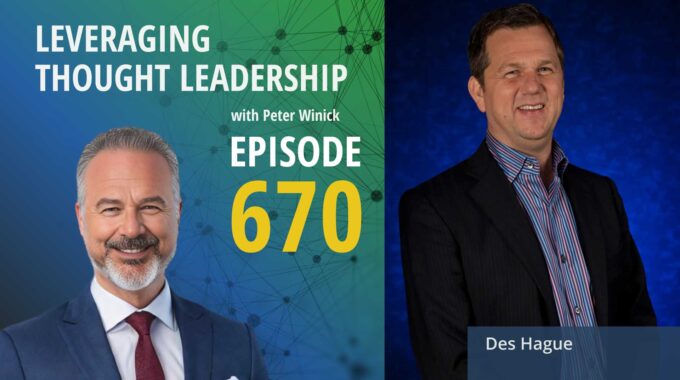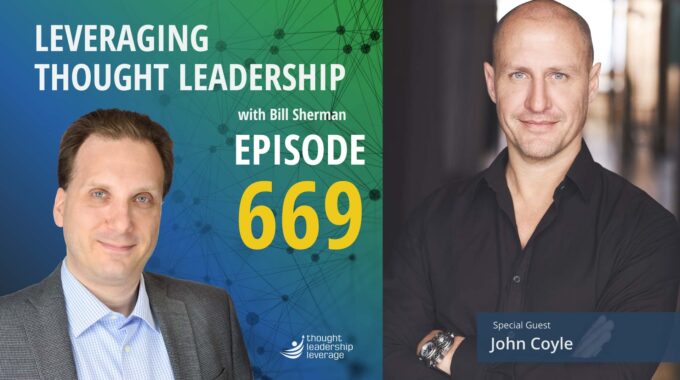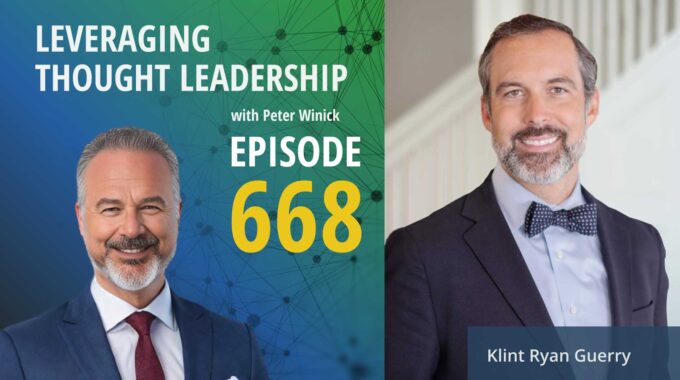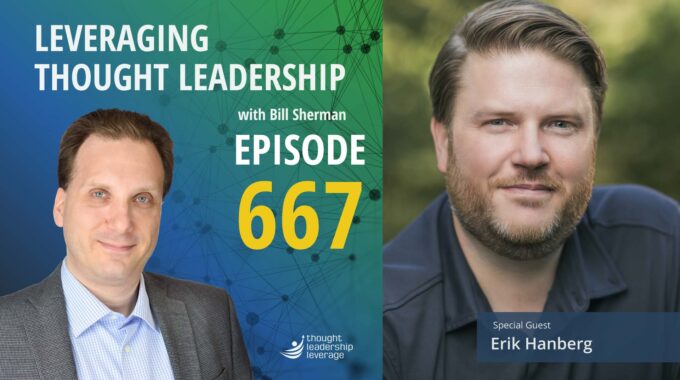Lessons in resilience, growth, and accountability from a global CEO This episode explores why thought…
Finding Peace Amidst Chaos | Dr. Davron James
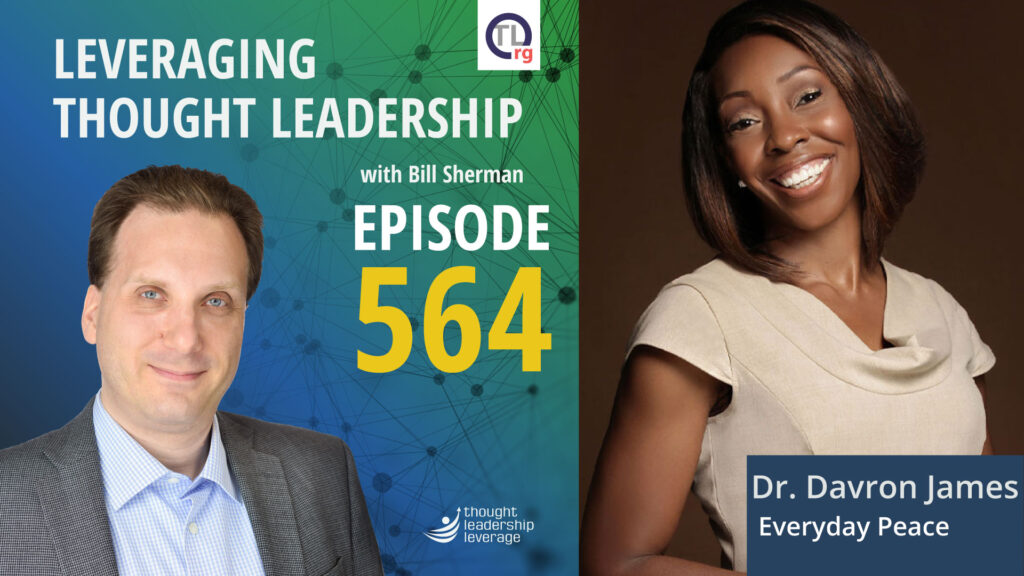
Embracing Self-Awareness for Personal Growth and Peace
A conversation with Dr. Davron James about her journey in Thought Leadership and the power of being in the moment and finding Everyday Peace.
Join us for a riveting episode of Leveraging Thought Leadership as host Bill Sherman welcomes Dr. Davron James, a renowned public speaker, life coach, and the host of the weekly live radio program, “Everyday Peace” on the Unity Online Radio Network.
In this enlightening conversation, Dr. James shares her inspirational journey into thought leadership, which began at the age of 17 when she stumbled upon the transformative book “The Power of Positive Thinking.” This encounter sparked a profound realization within her that everything she needed to achieve her potential was already within her grasp. Driven by this newfound insight, she embarked on a mission to empower others to unleash their innate abilities and embrace a mindset of positivity and resilience.
As Dr. James delves into her thought leadership platform, “Everyday Peace,” she reveals how she seamlessly integrated principles of peace and wholeness into her professional endeavors, particularly in the field of pharmacy. By infusing her lectures with insights on cultivating inner peace amidst life’s challenges, she witnessed a profound impact on her audience’s well-being and mindset. Through her keynote speaking engagements and writings, Dr. James continues to spread her message of empowerment, encouraging individuals to redefine their perceptions of stress and adversity, and embrace a “can do” attitude rooted in self-awareness and acceptance.
Drawing upon her background in acting, Dr. James illuminates the connection between presence, authenticity, and effective communication in thought leadership. She shares valuable insights on leveraging acting techniques to connect with diverse audiences authentically, emphasizing the importance of being fully present in the moment to foster genuine connections and empathy. As the conversation unfolds, Dr. James offers practical advice for aspiring thought leaders, advocating for the Meisner Technique as a powerful tool for cultivating empathy and understanding in professional interactions. She also provides a glimpse into her upcoming venture in thought leadership, a forthcoming book on forgiveness, highlighting the emotional challenges and rewards of navigating this transformative journey. This will be Dr. James’ second book after Freedom Is Your Birthright, which teaches how to attain internal freedom, an essential ingredient on the exciting journey to Everyday Peace.
Don’t miss this captivating episode as Dr. Davron James shares her invaluable wisdom and insights on leading with purpose, authenticity, and everyday peace. Tune in to Leveraging Thought Leadership and embark on your own journey of empowerment and transformation.
Three Key Takeaways:
- Inner Potential Unleashed: Dr. Davron James’s journey underscores the transformative power of self-belief and inner exploration. Her encounter with “The Power of Positive Thinking” at a young age ignited a realization that everything she needed to succeed was already within her grasp. This highlights the importance of self-awareness and tapping into one’s innate potential to drive personal and professional growth.
- Everyday Peace: Through her thought leadership platform, “Everyday Peace,” Dr. James emphasizes the significance of finding peace and wholeness amidst life’s challenges. By incorporating principles of positivity and resilience into her professional endeavors, she empowers individuals to redefine their perceptions of stress and adversity. This takeaway underscores the importance of cultivating a mindset of gratitude and acceptance to navigate life’s ups and downs with grace and resilience.
- Authentic Connection: Dr. James’s insights on leveraging acting techniques to foster authentic connections underscore the importance of presence and empathy in thought leadership. By being fully present in the moment and embracing vulnerability, thought leaders can forge genuine connections with their audience and inspire meaningful change. This takeaway highlights the transformative impact of authentic communication in fostering empathy, understanding, and positive change.
If you are like Dr. James and have an idea you need to share with the world, Bill Sherman has some additional advice that can help you make the platform for that idea powerful!
If you need a strategy to bring your thought leadership to market, Thought Leadership Leverage can assist you! Contact us for more information. In addition, we can help you implement marketing, research, and sales. Let us help you so you can devote yourself to what you do best.

Transcript
Bill Sherman What big idea can you evangelize better than anyone else? When I ask people this question, I get two broad categories of answers from thought leadership practitioners. Some people will they mumble and say, you know, I haven’t found it yet. There are so many big things I could talk about. And then there are those people who have found their lane. They know their big idea of leadership. And whenever they talk about their idea, you hear the voice crackle with energy and see their eyes light up, and they will talk about their idea whenever they have the opportunity. They’ll even make opportunities. And that’s the story you’ll hear today as I speak with Doctor Davron James, who is with Everyday Peace. We’ll explore how she found her lane and tested her content. You’ll learn lessons along the way. You can apply yourself for thought leadership. I’m Bill Sherman and you’re listening to Leveraging Thought Leadership. Ready? Let’s begin.
Bill Sherman Welcome to the show, Davron.
Dr. Davron James Oh, thank you for having me. I’m happy to be here.
Bill Sherman So I want to begin with a question, an origin story. And this is one where when I ask people how they get into the world of thought leadership, I hear a variety of answers. Yours is absolutely delightful. So let me ask you, how did you start? What was your first entry point into the world of thought leadership to even realize this world existed?
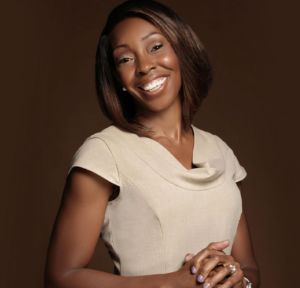
speaker, life coach, and the host of the weekly live radio program, “Everyday Peace” on the Unity Online Radio Network.
Dr. Davron James First of all, I did not realize this world existed. I wasn’t sure what I had been introduced to, but I loved it. So I got to back up just a little bit and tell you that I was 17 years old. I have just graduated high school. It was the summer before I was leaving for college. I had accepted to go to college to study pharmacy and my brother, who was a year younger to me, gave me a book out of nowhere. He just gives me this book, The Power of Positive Thinking by Norman Vincent Peale. Now, a little disclaimer. I thought he bought that book for me. Years later, he told me, took it off of my mom’s bookshelf and gave it to me. But nonetheless, he gave me this book. Tiny Little Book money. People know that book The Power of Positive Thinking by Norman Vincent Peale. I read that little book. I’m not exaggerating when I say it’s over 20 times from the time he gave it to me. So let’s say I graduated in May. I left for college mid to late August and what that book did for me, I really don’t have the exact words for it, but here I am, the 17 year old kid getting ready to go study pharmacy, and I knew in that moment, the first time I read that book, something lit up inside of me and I said, I have to be able to do this. Whatever he did for me in that book, which was to give me a belief that everything that I thought I could be, it was already inside of me. I just had to learn how to tap into it. And honestly, this is going to make you laugh. When I read the book, probably for the 20th time, and I’m taking notes peevishly I still do that to this day as a habit I had as a child, take writing in journals, and I’m taking notes feverishly, and I thought, Eureka! I found the formula for never having a problem ever in my life. Okay, I laugh, you know, many, many years later, decades later. Because what I had really.
Bill Sherman Clearly you haven’t had any problems, right? It’s been smooth sailing ever since you read the book. Right.
Dr. Davron James And if you believe that. Right. I got a whole bunch of stuff I can tell you. Right, Woody? What it taught me. It was the beginning. It was the gateway to me understanding that the solution. For everything that happened was inside of me. If I learned to calm down and see things from different perspectives, right. Thought leadership. I didn’t have that term in my will be in my wheelhouse at the time, right? But I also learned that everything that happens in my life, I have the opportunity to give it all of them, meaning that it has meaning that whatever this is, it could be the end of me. If I say so. It could be the beginning of a whole new discovery about myself that I can use to get to my next level of greatness. And that is what that book did for me over and over again. I used to give it out to, people as gifts, you know, to say, hey, this is what happened for me when I read this book. And then I started incorporating it in everything I did. I still read it. It’s still, you know, part of my, my, my book collection that I read from time to time. So it’s been a wonderful, wonderful opening to a wonderful journey for me.
Bill Sherman So there’s so much there that I want to unpack. First question. Did your brother actually read the book before gifting it to you from your mother’s shelf, or do you not know?
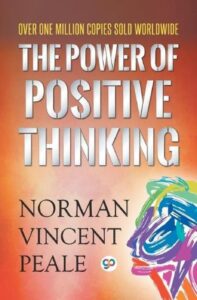
Dr. Davron James So I gotta tell you, I am at the time and still am a lover of romance novels, particularly historical romance. That’s what I read as a kid, and my brother was just the opposite. He was always reading autobiographies, what we now call self-help books. So he definitely read it. Right. Okay. And something that he got in it. I was getting ready to leave for college. I’m the oldest of three. He gave it to me and I thought, I honestly thought he bought this book for me and never questioned where he got it from. Until one day he came across one of my podcast calls. Yeah, I took that book off of mommy’s bookshelf.
Bill Sherman Well, and that intentional gifting of books, you were the recipient at 17. But as you said, you’ve gifted this book. And perhaps others, I think is part of the journey of thought leadership we go through. We read. Actively. You know, like you said, almost like we’re in school, still underlining, taking notes, all of those things, digesting ideas. And then when you see someone who is in need of that idea, it’s easy to match and say, here, read this. Yeah.
Dr. Davron James Right. And the good thing about that book, because we live in a society where we’re moving at this at the speed of sound. Almost. Right. We’re going so fast. That book is such a tiny, tiny little book. And now they have even abridged versions of that tiny little booklets that I’m able to give away, and people can really read it. And if you take a train to work, you commuting to work, or a quick read before you go to bed at night, people can really finish it from cover to cover. And I’m passionate about books that can do something wonderful in a short period of time. Well, I think.
Bill Sherman If you compare the world of when it was written and the pace of the world then versus the pace of the world now, we’re now like, give me a 30 or 60 second answer. The book is the long form. I have to give you permission for my attention within those first 30 to 60s before I’ll give you permission to read a chapter, let alone a whole book.
Dr. Davron James Yeah. And we have so many things competing for our attention. So it really is says a lot when you can take a moment and invest in yourself, because that really is what it is doing, is investing in yourself. And people have many different learning styles too. But I think that book, it’s a small enough book as far as pages, that the simplicity of the writing, everything about it, the message, it’s timeless.
Bill Sherman And that ability to stop, reflect and think. Is really what? When you practice thought leadership, often you’re asking your audience to do look at the world, look at your life. Look at the context that you’re in in a new way. Sometimes that will be transformative. Sometimes it’s very practical. Here, do X instead of y. But that invitation just to stop and think is itself a gift.
Dr. Davron James Oh my goodness, you’re so right. And so often people we get so caught up in the. The destination right in the destination is good. I worked in health care for over 30 years. I am destination focused. I want you know, everybody that I touch here comes in contact of my department to you to have had a great life affirming experience. However, it is in the journey, right? Being able to say in this moment right now, I need to stop, I need to refocus, I need to recalibrate. I need to maybe hand off, I need to so that ability to stop, just to stop and breathe for two seconds. So very important. So.
Bill Sherman Let’s advance the clock just a little bit. You talked about reading. Doctor Norman Vincent Peale spoke at 17. Then he talked about getting into health care. I want to ask the question of how did you get into your space of thought leadership? And to answer that question also include a little bit of what the platform is about. Because interestingly, your story in health care, your platform isn’t necessarily health care related. So how did you now start practicing thought leadership?
Dr. Davron James Okay. So this is a very interesting story. And it has to do with a lot of courage. I’m always encouraging people to think out of the think out of the box. So at the time in my life, I was working as a consultant and as in pharmacy, in the field of pharmacy. And part of my job was to do monthly lectures on federal regulations as they related to long term care facilities and such in my life.
Bill Sherman Exciting, riveting stuff. You had the audience riveted.
Dr. Davron James On the edge of your seat, right? And so but for my audience, it was, you know, how to stay in compliance and, you know, and all of this and then, things about, you know, I pick a drug, we talk we talk about new developments in that particular medication. So I did that monthly. And one day I had this. I was still talking about what I call everyday peace. And I got it back up just for a little bit and give you the definition for which I use peace. Peace is wholeness, completeness, nothing missing, nothing broken. Totality. So that being my definition gave me a little bit of courage to do what I did next. I’ve been doing these talks with these providers, these nurses, for a while, and I got this idea after getting to know people, when you’re lecturing monthly, you kind of get to know a little bit about your audience. And people were stressed. Now, that’s not uncommon for the health care field. People are stressed. It’s a heavy field. And I thought, well, if I could give them a little bit, some techniques, some, some something to hold on to at the end of the day, help them develop some positive habits. I decided that at the end of my talk about pharmacy and regulations, I was going to spend about 2 to 5 minutes talking about what I call everyday peace. And I started doing that. I started with people asking me questions. I said, you know, ten minutes for Q&A. It was always during the Q&A. I was starting to get questions about everyday peace. So I started doing it every month at every facility that I went to. Now, to be.
Bill Sherman Clear, this wasn’t part of the curriculum that you were delivering, right? You said, I’m going to put this here, right?
Dr. Davron James Not at all. And I did it without permission. Like I stopped, I said, okay, that’s that, I want it. And I said, I want to go before we go to Q&A. I wanted to talk about something that is I’m passionate about and maybe helpful for you. So I do that little intro to it, and then we’d go to a Q&A about the topic for which I was there to speak about. So when no one chastised me the first time, I did it, well, you know, you do it again in another facility. In another facility that never get asked to stop. But what surprised me one day is I got a call, said, hey, we’re going to need you to come out and do a keynote address speaking address, which was an uncommon I did that regarding pharmacy and medical issues were like related to long term care facilities, but this particular call was a little bit different. They said we were going to ask you to come out, but we do not want you to talk anything about pharmacy. You know, that little piece thing you do at the end of your talks? Would you be willing to do that? I it’s not associated with anything with your company. We’re asking you to come out. And I thought, my goodness. So I did that. It was a humbling experience because of course, I was nervous because here I was, with this, the biggest platform I’d ever had, talking about something that I had been studying since I was 17 years old. And when I realized, and I got the feedback from people about how they were incorporating it in their lives, small little things, my heart was touched. I was humbled to know that, wow, this is impactful. It is making a difference in their life. It’s making them find a new fall in love with the purpose that they set forth with again, re-energize. That was how I began, and it was just from there me deciding to get out of my own way. Right. Because you have to do that first. The focus was on me and I thought, well, this is I can’t interject these thoughts, but get out of I saw a need, I got out of my own way, and I took a risk and said, okay, here’s what I’m going to try for, you know, to be giving. So I think it’s always about. The receiver. Not so much about the person who is doing the giving. I thought here they’re going to be able to receive something that I really believe will help them in the long run.
Bill Sherman So there’s several things I want to call out in that story that I think are notable. One, as you said, you want to share this in the 2 to 3 minutes sound bite, sort of the little bit of content. Right. It was the taste. And you did that, as you said, without asking permission. And then it became popular. The next thing is, when you were asked, could you turn this into a full keynote? You responded, yes. Right now, I don’t know. With Inside your head you said, hey, I’ve got 2 or 3 minutes of content here and there. How do I fill up a keynote about all of this? Or if you said, oh, I’ve got that already. How did you respond in that moment? Was it excitement? Did you know what you already had? Or did you have to go to the drawing board and say, I’ve got to figure out a keynote?
Dr. Davron James Well, I definitely had to figure out a keynote, but I’ll tell you, I, I mentioned earlier that I’m a person who studies and has journals and journals and journals, so. Well, before I got to this point, I had written out 30, 45, 60-minute talks, 15 minute talks on what I wanted, what I wanted to share. I’d meet people and have experiences with them. And I think about it and I say, okay, I know I’ve read something about that, or and I’d write something about that. So I, I was prepared in that way to give it was, you know, thinking about this particular audience, which is a more scientific audience. We were all in the health care profession, data driven and thinking to myself, well, I want to make sure that I am speaking the language of my audience. So it took a little bit of tweaking there, but I definitely had material, if you want to call it material. I had topics that I thought would be very, very impactful in a positive way for this particular audience.
Bill Sherman Fantastic. And the piece that you mentioned about, like nurses and health care or other health care practitioners, whether or not they’re data driven. I think it’s a human quality of when we leave work, we want to go home at peace with the day rather than feeling stressed, worn out, burnt out, carrying anxiety, whatever it is.
Dr. Davron James Well, you hit the nail on the head as they say. One of the things I always tell people was, no matter how different you think that we are, we all have some fundamental desires, and one of which is to know we want to feel confident that no matter how dangerous it seems or dangerous or scared, we are throughout the day that we’re all going to go home and be safe in the people that we love are going to be safe. That is universal. We all want that. So speaking to that and saying one way you can be safe emotionally, right, is to have these particular is two perspectives. To put these to tweak your perspective a little bit, to, view stress maybe differently, to view challenging situations differently, to give yourself more grace. So what I was doing was, and what I continued to do with my clients today is to give people strategies or help them develop strategies for themselves that help to frame life from a can do instead of oh my goodness, I can’t believe it’s happening to me, right? And I don’t mean can do from putting more pressure and stressing because we don’t need that but realizing that these things that are happening in our life are happening for our benefit. I know they don’t seem like they I could go down a litany of things in my life that have occurred that I’m like, this can no way be utilized for my good. But you look back and say, if that hadn’t happened, then my viewpoint on this may have changed. I may not have changed. I may not have evolved. I mean, so these things, everything can be used is a ability to step into your next level of greatness if you allow it and know how to allow it.
Bill Sherman If you’re enjoying this episode of Leveraging Thought Leadership, please make sure to subscribe. If you’d like to help spread the word about our podcast, please leave a five-star review at ratethispodcast.com/ltl and share it with your friends. We’re available on Apple Podcasts and on all major listening apps as well as thought leadership, leverage, dot com forward slash podcasts.
Bill Sherman One other thing that I want to call out, and this is something that I’m working through and processing as we talk now is the name of the platform every day piece every day not meaning common. Like oh that’s just an everyday habit that I do. But do you want peace every day? Right. And it invites people to say, yeah, I don’t want that. Just, you know, once a month or twice a year where I feel it. I want that to be an active thing. And so buried in the name of the platform I love what you’ve done is not only sort of a vision of a future state and possibility, but also an invitation to agency on behalf of the individual.
Dr. Davron James Yeah, you’re the first person to actually ask me to put it that way. So it’s every one word day, one word peace, one word. It’s not common peace. Because if you think about it, it’s not common for us to embrace peace on a everyday basis. It isn’t. It’s more common for us to embrace chaos and stress, but it’s tweaking. Our thought process allows us to know that we in this moment, we are whole. We are whole. Even if what’s happening doesn’t feel great, right? It’s like you said, having agency over the moment. It’s first of all accepting what is. You have to do that first before you can embark on any type of change in understanding all of our power exist in this moment. Okay. How tremendously blessed is that? I mean, all of our we are powerful in this moment. And guess what? We have this moment. We’re here. Let’s use it.
Bill Sherman So let’s go back a moment to. You were talking about reworking the keynote to meet the needs of your audience, right? And you said, hey, this is a health care audience. They are very data and outcome driven, and I need to frame these stories and examples and thinking in a language and in a way that it will be open to you. Now, I know something else that you do in part of your very holistic life is acting, and it is also a passion. Theater is a passion of mine, both from what I studied. And I think there’s something about acting that calls us to be present to the audience in the moment. And the audience you have on a Friday night is different from a Saturday matinee, which will be different from tomorrow or the next day. So my question is to you. How do you see the connection between your work in acting and thought leadership?
Dr. Davron James Oh, I love this question. And I got to go back when I was interviewed by somebody years and years ago. And she said to me, she said there there’s no correlation between what, you know, your world as like, oh my goodness, they are so intertwined. And so you mentioned theater, which is where I really got my start. And I still do theater to this day. You’re absolutely right. The audience that I have on Friday is that the audience isn’t going to have on Saturday night, and just because no one dropped any lines on Friday doesn’t mean they won’t drop any lines on Saturday. So acting is this type of profession where you have a lot to learn and study, but in the moment you’re willing to cast it all aside and be very, very present. Be very, very present. If the prop isn’t there, is okay does need to be there. You’re so present in the moment that you’re flexible. You know the rules. You know the lines. You know, you know the story. And that’s the same in our professional life. You know what you’re doing. But then when the curveball comes not to be so rigid, you want to be like the palm tree in Miami. When the storm comes, you can bend and you can. You can stand up straight, and then you can bend to the other side, and you can stand up straight all of the time, balancing the glass bowl on top of your head. That’s how I view acting, is that I’m so present in this moment. I’m so focused on giving in this moment, right what the moment needs, what the person needs, right? Till all of the others of the moment before. Does it matter? The moment six minutes from now doesn’t matter. This moment matters what happens in this moment. It takes so much pressure for you to. It takes so much pressure off. When you are very present in this moment, the next moment sort of unfolds on its own because you’re in flow. And so that is a skill that I learned from acting is a skill that I use it by clients. Being present is a skill that I use in health, have use. I’ve been in health care for over 30 years. Hard to believe, but as a skill that I use in healthcare is being present in this moment. Taking care of this moment and allowing this moment to propel me gently into the next moment.
Bill Sherman That flow state, the ability to be fully present, where time, sort of even the concept of time melts away. Right? I think also from an acting perspective, in theater, certainly with a live audience, it’s a little bit different with film. And certainly even here in podcasting we have an audience, but it’s not live in the same room with us. Right? But the ability to be on stage and read the cues from the room, whether you’re delivering a keynote or you’re a character presenting a character in a play, there are things that you notice breath, laughter, engagement of eyes, shifting in seats. All of those things create two way communication to help you understand. Am I reaching my audience? Are they engaged in the moment with me? And the best performance nights are the ones where not only are you in flow state, but that pulls the audience in with you. And I think that’s some of the magic.
Dr. Davron James Yeah, that’s some of the magic. And like that is that synergy, right. That you connect that I tell people oftentimes, you know, the heartbeat, you know, it’s 70 beats per minute. Right. And when you when you’re in a room with another person and you sync up, it’s, you know, not that they could have a hundred things happening with their heart, but just, just the idea of being in sync in that synergy and you’re drawing from and you allow yourself to draw from that the breath even you mentioned that everything you allow yourself to be in sync with that and you take the focus so much, it’s not on you anymore. It’s on giving. And you can feel it. You can feel when it needs just a little tweaking, when you need to pull back just a little bit. It’s the most the human dance of relationship is. It is amazing. And that alone is almost that. I want to use the word addictive for the present moment, because you really only can feel that when you allow yourself to give way entirely to this present moment. Watching the eye movement of the next person, this. You know that mirroring this is technique you do and enacting sometimes, right? And watching all of that and becoming in sync with that, not and not judging it in the same place as you, watching it without judgment. That’s such a great thing that you get from acting to is without judgment just to accept this. It allows us to do this. Talk about leaning into conflict. You can do that when you learn to watch. So no judgment. Just watching. I don’t have to give it a name, but I can see a need.
Bill Sherman There’s so much here. And I love this conversation for many reasons, because it’s a skill of thought leadership that you can continue to refined, develop and practice in everyday situations, whether or not you’re actually practicing thought leadership at the moment. But the better you are at seeing others, reading others and engaging with them and being present, the easier it is. When the time comes for you to share your thought leadership, whatever it is.
Dr. Davron James Yeah, yeah. And that’s so true. That and this question just popped in my head. Or the statement when you said that I was working with a client one time about just what we’re talking about here, being in flow in this moment, in his concern was that he really wanted to be able to be his authentic self, and he didn’t want to have to change and be somebody else. And there is, when you’re present in the moment, is your most authentic self. When you’re present in that moment and you’re really in tune with things in that moment, the ability to pretend sort of you lose that ability because the focus isn’t on, oh, I need to worry about how they perceive me. You lose that. So I encourage people to really try that, be present, but pay attention to things. Really listen. Don’t worry about what you’re going to say next. You’ll know what you’re going to say next if there’s anything to be said at all.
Bill Sherman You have an amazing example of a time where many of us would think that it’s all about, and it was at that moment, all about you. But instead you were that authentic self in the moment, seeing the needs of the other. Are you comfortable sharing that story?
Dr. Davron James I am, I am. So the story that you were referring to is the birth of my daughter, 23, almost 24 years ago. I got to the emergency room and they had called my, my doctor, but he wasn’t there yet. And so the, resident that, was going to get me all ready and everything. It was late, and maybe it was two, 3:00 in the morning. He was tired. He walked in the room. I could tell he was tired, and I could still see his face to this day in my mind. And he had. He was eating a sandwich, you know, and he walked in and they rushed him in and he started talking. He was getting a lot of professional and he kind of put his food away. I said, I want you to stop. He looked at me. He I guess he thought, oh, this woman’s about to say something to me.
Bill Sherman She’s going to chew me out for eating the sandwich. And this is the first food I’ve had in eight hours or something like that.
Dr. Davron James Yeah, okay. And she’s in pain. And it was. It pains me, you know, but. But I said to him, I said, what I want you to do because I know here’s what I knew, that if you feel better, right, you do better. Let’s get a connection first. I and my husband was sitting in a chair and I said, can you sit there for a second? So you sit there. I said, go ahead and eat your sandwich. Let’s talk for a moment. I said, while we talk, I want you to eat your sandwich. Right? I tell him I was a pharmacist. I worked long hours. He wouldn’t compared to me, this was he was a young, young guy. And so he ate a sandwich and we talked and he thanked me so much, he said, I don’t think anybody else would have allowed me to do that. And I knew, first of all, that he’s a human, just like I’m a human. We do our best work when our needs are met. That hunger, one of them sleep. And that can’t give you any more sleep. And I don’t.
Bill Sherman Know that that’s sort of like the curse of a resident, right? Right.
Dr. Davron James I can’t give you any sleep. I know you need that, too, but I want you to finish your sandwich. Right? So. And I use that. I use that a lot in life. For two reasons one for self love, self self care for my clients who do health care and do it. Take care of yourself. Because when you take care of yourself, you’re going to be giving your best to somebody else, right? That’s so very important. And when I engage with people to make sure that I see them. Not just what they do. What they’re here to do for me. But I see them. And as I can’t always do something about, what their situation is necessarily. But I can validate them by just saying, I see you and I often send that text, but I send that to a colleague this week and say, you know what? I meant to send this to you last week. I want you to know that I see the work that you do. I see the contribution that you know, and I appreciate you. It goes a long way for developing relationships, obviously, but. What it does for ourselves, for the giver of that is it makes us more in tune with our humanity. Okay. It reduces stress. It reduces the tendency towards anxiety and depression when we are grounded.
Bill Sherman And I’ll layer on a very practical perspective as well. We live in a noisy world with many ideas bombarding each of us every single day. And most of those are pushed towards us. Push notifications on our phone. The advertisements that we get in pop ups or that we see on billboards, etc. everybody’s pushing ideas towards us. It’s really different when you see the person and invite them to share and discuss. People light up and they recognize when they feel seen and don’t want to talk about an idea.
Dr. Davron James That’s the biggest gift you can give to someone, I think. Think back to being a child or if you have children. I can remember my children say, “Mommy! Look, look look! Look! That right.” We never we never lose that part. See me, see me. I want you to see me. And then I want you to accept me. That’s the next level after seeing, right? Is I want you to accept me. And then an occasional kind word goes a long way, not only to the person who hears it, but to you the same. It validates you, too. Because if you can give kindness, what does it say about you? Right? These are all affirming and leadership skills that help you to grow in the most sustainable ways.
Bill Sherman So, Davron, I’m wondering here, we’ve been talking a lot about this is being seen in a one-on-one interaction. We’ve talked about live audiences as well. What suggestions would you give someone to help them practice in a one-on-one situation, or a one on many situation, or even when you’re putting an idea out in the world that you’re not going to see the person directly. So given this, this is an area where I feel you’ve got some expertise on seeing. What advice would you offer?
Dr. Davron James Were you not going to see the recipient directly. Right. So, I love this question. So, let’s go back to acting for a moment. One of my favorite techniques is the Meisner technique. Right. And I’m going to summarize this really, really elementary. So, for those of you who are in this girl said, oh, she didn’t do a great job.

Bill Sherman But this could turn into a theater podcast very quickly.
Dr. Davron James Very quickly when you get to theater people. Yes. But so one thing that I loved about Meisner when I and I continue to study, but is that it made an impression on me that I am, I possess inside this being. Everybody, every personality trait, every person that you get from the from the Queen of England to, I don’t know, you could say someone who has done some things that you five are so, out of your character. That’s inside of me too, right? So when I, when you’re preparing, to give something to someone that you’ve never got to see, maybe never see, make your talk come from a place of your presentation. Come from a place of authenticity. Where is your desire to add solution to a situation they may be facing? I may not know you directly, and I definitely don’t know everyone who’s going to hear this podcast. I think that’s a great, great example. I don’t know, you excel at 100%, but I do know that we share some traits and I’ll speak to those. I’ll speak to those in hopes that I will connect with you on a level where you can take parts of it, like being in a cafeteria and say, oh, that fits my situation right here. Maybe you share this podcast months later and say, oh, I picked up something else that will fit for me right there. But always being able to give to your audience, to your clients or your customers from a place of authenticity, wanting to add solution to a possible situation that they have. And I used to say that much more simplistic, simplistically say, you know, you want to come to Saul, but that always isn’t your responsibility, or even your place to solve is to add a solution for that, for the user, then to take it and mix it with some other ideas they have and come up with their own final solution. I just want to be part of that. Add something that you can put maybe save for rainy day and be useful to you.
Bill Sherman Exactly. The idea doesn’t have to be useful today or tomorrow. It may be something they recall years from now. It may not even be a solution. It may be a what if question that hit the right time returns and causes someone to think sort of cycling back to what we said. That ability to create that pause in the moment of the frenzy of every day, get someone to stop, reflect, think and choose. That’s the hard work of thought leadership, but also the joy.
Dr. Davron James It is the joy that we are. We’re free to think. But I encourage people because we don’t know. You know, I think back to that. Live from a planet of the apes, you know, what are you going to find out there? People are like, what am I going to find in my mind if I think too deeply? But just sit in silence and you’ll be amazed that the a lot of the stuff that you’ve been stressing over. I find this for myself and my clients all the time. If I just stop for a moment to stop and be willing to spend two minutes, even in silence. Oh my goodness, my brain thinks me. First of all, I said I needed that, right? And then all of a sudden, something that I heard, possibly on a podcast or read in the book comes to the forefront of my mind. I’m thinking, well, how quickly is that? And I go about my day and they’re within me. Is the answer. And it was sparked by first being willing to stop, to stop and embrace silence. Two minutes. You’ll be so thankful that you did.
Bill Sherman As I warned, we run the risk of this being a theater podcast. The concept of stopping and pausing. I think one of the things that I see often within scripts, and I’m going back to work that I did with some of Samuel Beckett’s work. There’s a difference in script between a pause and a beat, and you have to be willing to be comfortable in the uncomfortableness of silence to let an idea or an emotion something have the space, and it doesn’t have to be you. That’s part of the game.
Dr. Davron James. I love that you just said that. Wayne Dyer said something that would made me think when you just said that. He said being able to know. I don’t know if it was his, but I heard him say it. He said, being able to exist between the raindrops. And I always love that. The space, there’s space there. There is space there between just think about that space there. And we don’t have to fill up every bit of space we are. We don’t have to keep trying to validate our existence on the Earth by running, you know, 100mph stillness. For this. Ignite your whole soul in your imagination, your creativity. Oh my goodness. You’re just gonna be like a new person. Like you’ve been on a ten-day vacation.
Bill Sherman So driven. As we begin to wrap up, I’ve got a couple of questions for you. First off is what’s your next challenge or adventure in the practice of thought leadership? Where are you headed next?

Dr. Davron James I love that question for you and for me. I’ve been. And in fact, today I had that, that thought. I mean, I’m in the process of writing a book, which I have been trying to write is a tiny book. I only write tiny books. I’ve only published one, but I write all the time in this tiny book. Forgiveness. Is where I want to go. What I want to finish. It’s been in progress, and I keep hitting emotional walls. I think that stopped me from saying, well, you know, and I and I don’t break through though. So my next chapter is to publish this book because I believe that it will be a help to people everywhere. A lot of times what we what we hold inside of us blocks us from being effective leaders and leaders of self and leaders of others. So that’s my next journey.
Bill Sherman And in some ways having a large word count for a book. 30,000 words, 40,000 words winds up almost being easier to fill up than to write something that’s short. Final question.
Dr. Davron James I found that to be true.
Bill Sherman You’ve been on this journey and thought leadership going back to when you were 17. What advice would you give your younger self? Based on what you’ve learned to date?
Dr. Davron James Great question. If I were to be able to talk to her, I would say, I want you to trust your intuition. You know what you know. And in this moment, you know it for a reason. Trust that. Move on that. Stop looking for validation. You’re going to be required in this journey to validate yourself. Do that.
Bill Sherman That’s beautiful. Doctor Davron James, I want to thank you for joining us today to talk about thought leadership, your journey. Acting audience present in the moment. It’s been a fantastic conversation.
Dr. Davron James Thank you for having me.
Bill Sherman If you’re interested in organizational thought leadership, then I invite you to subscribe to the OrgTL newsletter. Each month we talk about the people who create, curate and deploy thought leadership on behalf of their organizations. Go to the website, OrgTL.com and choose ‘Join our Newsletter’. I’ll leave a link to the website as well as my LinkedIn profile in the show notes. Thanks for listening and I look forward to hearing what you thought of the show.


